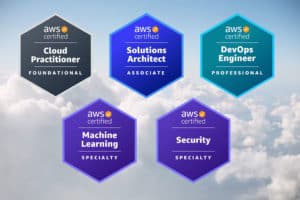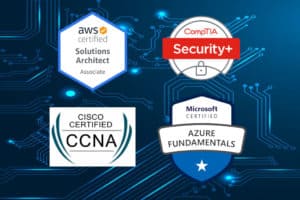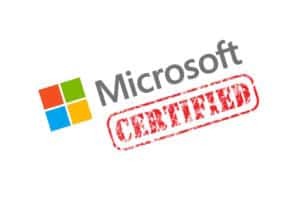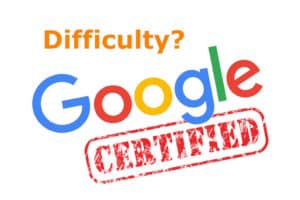Diving into the world of Human Resources (HR) feels a bit like trying to sip from a firehose, doesn’t it? Every day brings a new trend, compliance requirement, or best practice that claims to be the make-or-break of your career.
Good news: This blog post will guide you through the essential certifications that can give you a solid ground in the ever-shifting landscape of HR. We’re talking real advancement fuel.
Quick Takeaways:
- HR certifications boost credibility, salary, and promotion opportunities, acting as career catalysts.
- Preparing for HR certification exams requires a blend of study groups, online courses, practice exams, and effective time management.
- Maintaining HR certifications involves earning continuing education credits, staying engaged with the HR community, and ongoing learning to stay ahead in the field.
Why Pursue HR Certifications?
Elevate your game in the HR field – that’s what certifications do. Diving into the world of HR certifications is more than just adding a string of letters behind your name. It’s about beefing up your professional arsenal, making you stand out in a sea of applicants. Imagine having a toolkit, one that’s brimming with the latest HR trends, laws, and best practices. That’s what these certifications offer. They’re a testament to your dedication and passion for human resources, making you a credible asset to any team. In a nutshell, pursuing HR certifications is like giving your career a turbo boost, ensuring you’re not just keeping up but leading the charge.
What Are the Must-Have HR Certifications?
When it comes to HR certifications, think of them as the Avengers of the HR world – each with its unique strengths. Here’s a lowdown on the ones that pack the biggest punch:
SHRM-CP (Society for Human Resource Management Certified Professional): Tailored for HR professionals who implement policies and strategies, serve as point of contact for staff and stakeholders, deliver HR services, and perform operational HR functions. It’s like being the Swiss Army knife of HR.
PHR (Professional in Human Resources): This one’s about mastering the technical and operational aspects of HR management, including laws and regulations in the U.S. It’s for those who’ve got their hands deep in the HR pie, dealing with program implementation, and handling day-to-day HR operations.
SPHR (Senior Professional in Human Resources): Aimed at senior HR professionals, this certification revolves around developing strategy, leading the HR function, fostering influence within the organization, analyzing performance metrics, and aligning HR strategies to organizational goals. It’s the equivalent of being the HR Jedi.
aPHR (Associate Professional in Human Resources): The ideal starting block for newcomers. It’s like the first rung on the HR ladder, giving you a solid foundation in the profession.
These certifications are like unlocking levels in a game, each providing a unique edge and viewpoint on the vast world of HR.
How Will These Certifications Boost Your Career in HR?
So, you’ve got the certifications under your belt – what’s next? These aren’t just fancy titles; they’re career catalysts. Here’s how they turbocharge your professional journey:
Salary Lift-off: Certifications can significantly bump up your salary. Think of them as your financial booster rockets. According to the HR Certification Institute’s 2018 HR Impact Survey, professionals with certifications can earn up to 29% more than their non-certified peers.
Promotion Magnet: They make you more attractive for promotions. With these certifications, you’re telling your employer, “I’m serious about this, and I’ve got what it takes to lead.”
Expands Your Playfield: Whether you’re eyeing a leap into a multinational giant or making a mark in a funky startup, certifications make you an appealing pick across various industries.
Demonstrates Commitment & Expertise: It’s about showing not just your current employer but the entire industry that you’re invested in your career. You’re not someone who rests on their laurels; you’re a go-getter, constantly upping your game.
Here’s a little nugget that’s often overlooked but can make a world of difference – networking within certification communities. Engaging with fellow certification holders can unlock doors to opportunities that aren’t even out there in the open yet. Think of it as the secret VIP room of career advancement in HR.
In sum, these certifications are not just badges of honor. They’re your passport to a world of opportunities, commanding salaries, and respect in the HR realm. So, ready to take your HR career to new heights?
What Can You Do to Prepare for Certification Exams?
Preparing for any HR certification exam can seem daunting at first glance. But fear not! With the right approach and resources, you’ll be crossing that finish line with flying colors. Here are some strategic tips to kick-start your exam prep journey:
- Join Study Groups: There’s strength in numbers. Connecting with peers who are also preparing for the exam can provide you with support, insights, and motivation. You can exchange study materials, discuss difficult concepts, and quiz each other.
- Online Courses and Webinars: Leverage the abundance of online resources available. There are specialized courses designed to guide you through the syllabus and strengthen your understanding of key topics. Websites like Coursera and LinkedIn Learning are good places to start.
- Practice Exams: Practice makes perfect—this old adage holds especially true for certification exams. Taking practice tests can help you familiarize yourself with the format and time constraints of the actual exam. It’s also a great way to identify areas that need more attention.
- Time Management: Begin your prep early and set a study schedule. Breaking down the syllabus into manageable chunks and dedicating specific times to study each section can help reduce overwhelm and increase retention.
- Choose the Right Study Resources: Not all study materials are created equal. Seek out highly recommended textbooks, online forums, and review courses. A pro tip? Check out the HR Certification Institute’s list of approved preparation providers for reputable resources.
A little extra tip that might not be on everyone’s radar is to actively follow HR influencers and thought leaders on platforms like LinkedIn or Twitter. They frequently share insights, latest trends, and valuable resources that could give you an edge in preparing for your exam, aligning theory with real-world application.
How Do You Maintain Your HR Certification?
Congratulations, you’ve earned your HR certification! Now, the journey shifts towards maintaining it. Staying certified not only demonstrates your commitment to the profession but also ensures you remain at the forefront of HR practices. Here’s how you can stay certified:
- Continuing Education Credits: Most certifications require you to earn continuing education credits (CECs) or units (CEUs) within a specific time frame to renew your certification. These can be acquired through attending workshops, webinars, conferences, or completing relevant courses.
- Re-certification Timelines: Keep an eye on your certification’s re-certification cycle (usually every 1-3 years) and plan accordingly. Missing deadlines could mean having to retake the examination or undergoing a reinstatement process.
- Stay Engaged with the HR Community: Joining HR associations, attending HR networking events, and participating in online forums not only help you earn CECs but also keep you updated on industry trends and best practices.
- Ongoing Learning: The world of HR is always evolving. Make a habit of reading HR publications, attending training sessions, and seeking opportunities for professional development.
One piece of advice that’s often overlooked is leveraging your workplace projects and initiatives for CECs. Many certification bodies allow you to earn credits by working on significant HR-related projects, such as implementing new HR systems, leading organizational change, or developing innovative HR strategies. This approach allows you to grow professionally while staying certified—a win-win!
Remember, maintaining your HR certification is an investment in your career and future. By staying curious, committed, and connected, you’ll not only keep your certification up to date but also position yourself as a knowledgeable and skilled HR professional, ready to tackle the challenges of today’s dynamic workplace.








